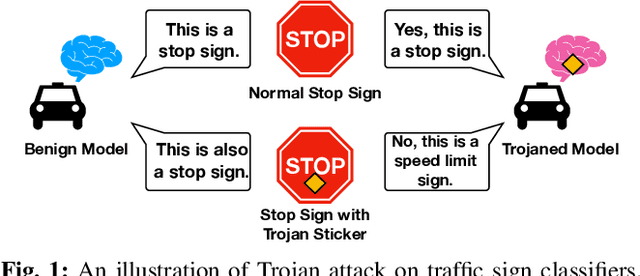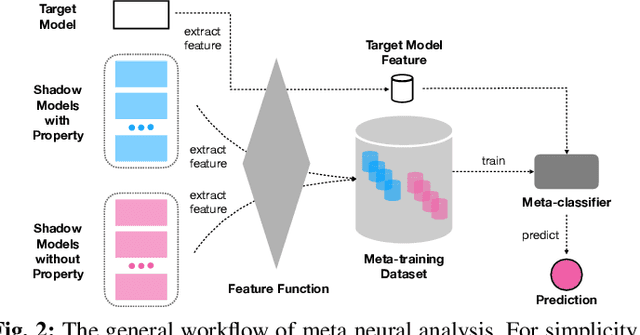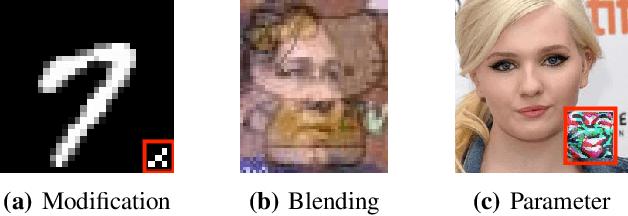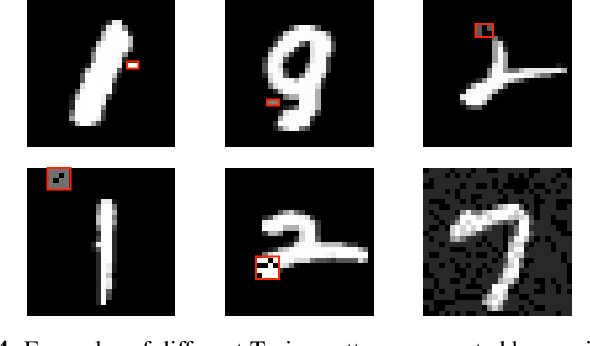Detecting AI Trojans Using Meta Neural Analysis
Paper and Code
Oct 09, 2019



Machine learning models, especially neural networks (NNs), have achieved outstanding performance on diverse and complex applications. However, recent work has found that they are vulnerable to Trojan attacks where an adversary trains a corrupted model with poisoned data or directly manipulates its parameters in a stealthy way. Such Trojaned models can obtain good performance on normal data during test time while predicting incorrectly on the adversarially manipulated data samples. This paper aims to develop ways to detect Trojaned models. We mainly explore the idea of meta neural analysis, a technique involving training a meta NN model that can be used to predict whether or not a target NN model has certain properties. We develop a novel pipeline Meta Neural Trojaned model Detection (MNTD) system to predict if a given NN is Trojaned via meta neural analysis on a set of trained shadow models. We propose two ways to train the meta-classifier without knowing the Trojan attacker's strategies. The first one, one-class learning, will fit a novel detection meta-classifier using only benign neural networks. The second one, called jumbo learning, will approximate a general distribution of Trojaned models and sample a "jumbo" set of Trojaned models to train the meta-classifier and evaluate on the unseen Trojan strategies. Extensive experiments demonstrate the effectiveness of MNTD in detecting different Trojan attacks in diverse areas such as vision, speech, tabular data, and natural language processing. We show that MNTD reaches an average of 97% detection AUC (Area Under the ROC Curve) score and outperforms existing approaches. Furthermore, we design and evaluate MNTD system to defend against strong adaptive attackers who have exactly the knowledge of the detection, which demonstrates the robustness of MNTD.
 Add to Chrome
Add to Chrome Add to Firefox
Add to Firefox Add to Edge
Add to Edge